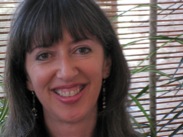As the price of solar has plummeted and leases have become more widespread, many more Americans have been able to go solar. But what about the 75% who can’t?
More options are emerging for solar for the rest of us — including Mosaic’s new online marketplace, which is making it possible for people to invest in community solar projects and earn solid returns.
This three-part series profiles some other startups that are paving the way to spread solar to all.
Just across the bay from Mosaic in San Francisco, three young entrepreneurs are finding new ways to crowdfund solar projects — and include the 75%. Not content to wait for someone else to do something, they’re taking matters into their own hands, rolling up their sleeves, and making projects happen.
Empowering the 75% Through Nonprofits
Youness Scally founded Everybody Solar in 2011. Its mission is to help nonprofits go solar, thereby benefitting not only the environment but also the nonprofit’s budget. By reducing its power bills, a nonprofit can focus resources on its programs instead of on operating costs. And that helps the community the nonprofit serves. Everybody Solar focuses on local nonprofits that work to help the people with the greatest need in the community or who are doing environmental work.
Scally’s motivation to start his own organization arose from frustration with the political process: “You hear a lot of doom and gloom about the environment, and I wanted to do something about it. A lot of organizations are doing environmental work, but much of it is focused on policy. For me, and for many people, it’s important to have a tangible effect.”
Nonprofits are part of the 75% in that it can be especially challenging for them to go solar. Not only are their funds generally limited, but they aren’t able to take advantage of tax incentives. So solar might not be financially feasible for them without some extra help. That’s where Everybody Solar comes in.
Everybody Solar itself is a nonprofit. This means they can get grants and other funding that might not be available to a for-profit company, and they’re not motivated by profit or beholden to investors. On the other hand, they can’t solicit investment dollars from VCs or individuals. They can, however, solicit donations from the general public, through their website and at fundraising events.
Rebuilding Together
Everybody Solar is partnering with a nonprofit solar installer, SunWork, which can get good deals on panels in part because of their nonprofit status. In selecting panels, SunWork considers factors like the environmental impact of panels and how the manufacturers treat their employees. And SunWork also provides volunteer training, another way to involve and benefit the community.
For their pilot project, Everybody Solar is putting a solar PV system on the Rebuilding Together Peninsula (RTP) headquarters in Redwood City, CA. Rebuilding Together will pitch in a small percentage of the cost of the system, and Everybody Solar will provide the rest. Scally looked at leases and power purchase agreements, but for this project it turned out to be cheaper to partner with SunWork and let RTP own the system.
In fact, since the first quote for this project in July 2012, the price of solar has declined further, making the project even more feasible. And the payback period for RTP will be under two years. The 13.5 KW system is expected to save RTP about $3,500 a year, which will be freed up for their work: rehabilitating low-income homes and community centers, which includes energy-efficiency upgrades — yet another environmental benefit.
Empowering Communities Through a Multiplier Effect
The pilot project is on the small side, but Scally expects it will lead to more, larger projects. As new models emerge for solar financing and crowdfunding, they generally need to be tried out on a small scale before more widespread adoption. Once people see that a certain kind of project works, it’s easier to get more of those projects going. And like many pioneers in this area, Scally would like to create a model that other communities can replicate. His cooperative spirit can be seen in the way he shares information and ideas with other startups. The goal here is not to kill the competition, but to spread solar.
And Everybody Solar’s crowdfunding model also involves community members, giving those in the 75% a chance to participate in spreading solar. While donations are solicited online and can come from anywhere, much of the fundraising outreach is focused in the community — those are the people who can see the project and feel its impact more directly. Community members can even volunteer on the install.
For now, Everybody Solar is focusing on projects in California. Scally envisions eventually expanding to the rest of the country and doing demonstration projects in areas that have fewer options for solar: “If you do a solar project in South Carolina, it might have even more of an impact because people there don’t get to see the benefits of solar as much as in California.”
Solar in general gives a lot of bang for the buck. Besides protecting the environment, it can also provide benefits in areas like jobs, public health, foreign policy, and even national security. Everybody Solar takes this a step further. Their model has a multiplier effect in helping nonprofits lower expenses — which lets those organizations put more resources into pursuing their mission.
How You Can Get Involved
To be part of Everybody Solar’s work, you can contribute online, where you can also sign up to be notified about events and other news. You can also volunteer to fundraise, install solar, or help spread the word. And spreading the good word about solar, in order to get more actual projects up and running, is what Everybody Solar is all about.
This is part 2 in a 3-part series on solar crowdfunding models in California and was originally published at Mosaic.









